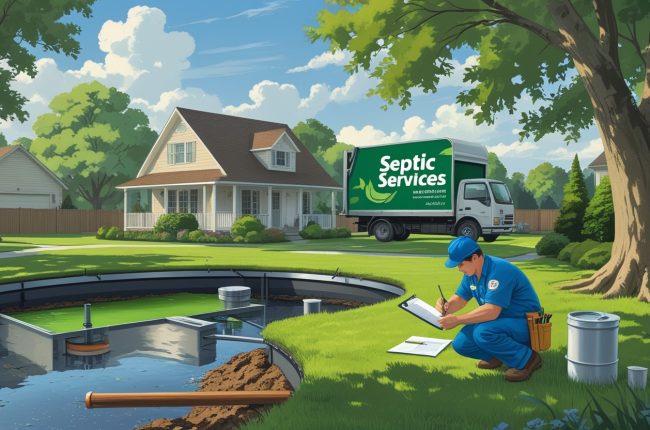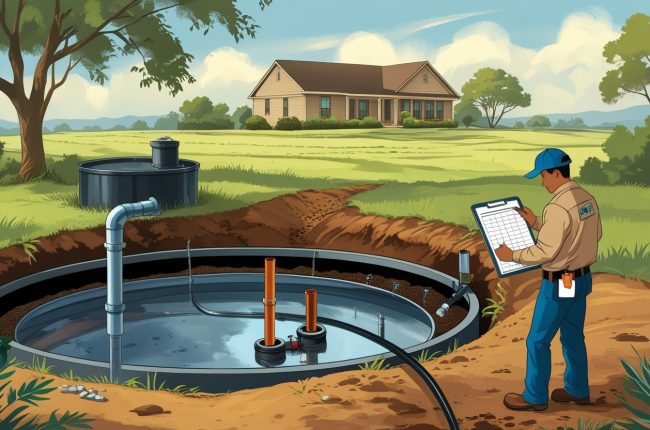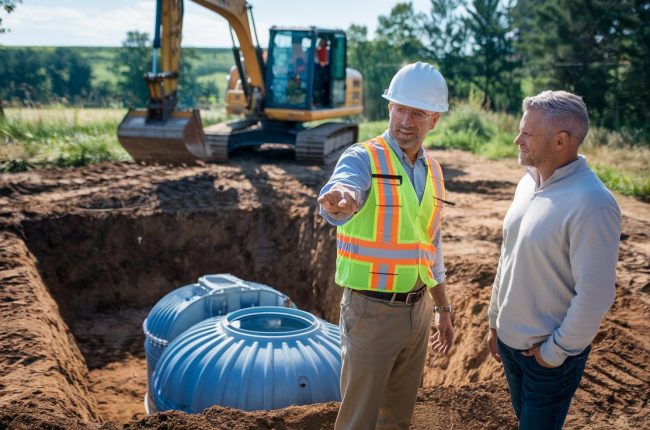Category: Septic System Regulations
Septic system regulations ensure proper design, installation, and maintenance to protect public health and the environment. They vary by region and cover permits, inspections, and effluent treatment standards.
Installing a septic tank is a complex process that requires careful adherence to legal and environmental regulations. Proper installation is crucial not only for ensuring the system functions efficiently but also for preventing environmental hazards…
Septic tanks are essential for managing wastewater in areas without access to centralized sewage systems. However, installing a septic tank involves more than just digging a hole and placing a tank. It’s a regulated process,…
If you’re building a home in Arkansas or managing a property that requires a septic system, one common question you might have is, Can I install my own septic system in Arkansas? While it may…
If you own property in the Mountain State, understanding West Virginia septic tank regulations is essential. Septic systems—also known as onsite wastewater systems, private sewage systems, or individual sewer units—are widely used across rural and…
Septic systems play a critical role in managing household wastewater in areas without centralized sewer systems. They ensure wastewater is treated and released safely into the environment. However, improper septic management can pose significant risks…
If you’re a homeowner in Vermont, understanding Vermont septic system regulations is critical to staying compliant and protecting your property and the environment. Whether you’re building a new home or maintaining an existing system, there…
If you own a home in Wisconsin and rely on a private septic system, it’s essential to understand the Wisconsin septic system rules for property owners. These regulations are designed to protect public health and…
If you own property in the Buckeye State, it’s crucial to understand Ohio septic tank laws. These regulations govern how on-site sewage treatment systems (commonly called septic systems) are designed, installed, and maintained. Whether you’re…
In New Hampshire, understanding NH septic tank size requirements is essential for homeowners and property developers. Properly sizing a septic tank ensures the wastewater system functions efficiently and complies with local regulations. This article will…
If you own property with an on-site wastewater system in the Lone Star State, understanding Texas septic inspection requirements is crucial for staying compliant and protecting your property. Whether you’re buying a home, maintaining your…
If you’re building a home in a rural area or off-grid property, you’re likely wondering: can I install my own septic system in Tennessee? The short answer is yes—but there are important rules to follow.…
If you’re planning to install a septic tank, the first question you might ask is: Do you have to have a permit to put in a septic tank? The answer, in almost every case, is…
Septic system regulations impact homeowners, buyers, and businesses. Staying compliant with new Tennessee septic tank laws ensures your system functions properly and avoids legal issues. Here’s what you need to know about the latest changes,…
A septic system must follow strict regulations in Georgia. Failing to comply can lead to fines, legal consequences, and environmental hazards. The penalty for illegal septic system in Georgia varies based on the severity of…
Regular inspections of septic systems are crucial for maintaining their functionality and preventing costly repairs. Understanding the septic tank inspection requirements can help homeowners ensure compliance with local regulations and protect their property from potential hazards. This…
Septic system regulations in Louisiana have changed, impacting homeowners, contractors, and real estate professionals. Understanding these new Louisiana septic tank laws ensures compliance, avoids penalties, and protects public health. Here’s everything you need to know.…
Installing or maintaining an illegal septic system in Indiana can lead to serious consequences, including fines and legal action. The state enforces strict wastewater disposal regulations to protect public health and the environment. Homeowners and…
A properly installed septic system is crucial for managing household wastewater, especially in rural areas. Many homeowners wonder, can I install my own septic system in PA? While DIY installation may seem like a cost-saving…
Understanding Kansas septic system regulations is crucial for homeowners, contractors, and property developers. Kansas enforces strict onsite wastewater treatment rules to protect public health and groundwater quality. This guide explains the permitting process, installation standards,…
A septic system is essential for homes without access to municipal sewer lines. But can you install your own septic system in New Mexico? Understanding the regulations, permit requirements, and costs involved will help ensure…



















